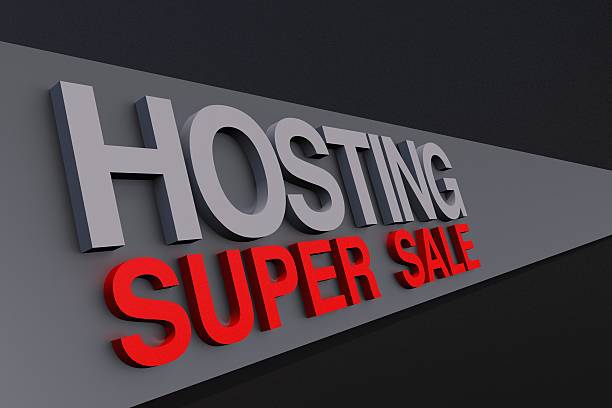When it comes to running a successful eCommerce store , your web hosting choice can make or break your business.
You might have the best product line, killer marketing, and a stunning Shopify or WooCommerce theme — but if your site is slow, crashes under traffic, or fails to secure customer data, all that effort goes to waste.
That’s why choosing between shared hosting and dedicated hosting isn’t just a technical detail — it’s a strategic decision that affects your store speed, security, uptime, and ultimately, sales .
In this article, we’ll explore:
- The key differences between shared and dedicated hosting
- How each impacts performance and scalability
- Real-world scenarios where one outperforms the other
- Best practices for choosing the right hosting plan for Shopify, WooCommerce, BigCommerce , and custom stores
Let’s dive in.
Understanding Shared Hosting vs Dedicated Hosting
Before making a decision, let’s define what we’re comparing:
Shared Hosting
Shared hosting means your website shares server resources (CPU, RAM, bandwidth) with multiple other websites on the same machine.
Think of it like sharing an apartment building — you get access to the utilities, but if someone next door runs a water-hungry business, your pipes may suffer.
Common Use Cases:
- Small online stores
- Startups with limited budgets
- Sites with low to moderate traffic
Dedicated Hosting
Dedicated hosting gives you full control over a single server. You don’t share resources — everything from processing power to storage is yours alone.
It’s like owning your own house — no neighbors hogging bandwidth or slowing things down.
Common Use Cases:
- High-traffic stores
- Custom-built platforms
- Businesses needing strict compliance or advanced performance tuning
Therefore, the core difference is resource allocation — and how that affects your store’s ability to scale, convert, and stay secure .
Why This Choice Matters for eCommerce Stores
Your hosting environment directly influences several critical metrics:
As an online seller, you want speed, reliability, and security — not just today, but as your business grows.
So which option delivers?
Let’s compare.
Shared Hosting vs Dedicated Hosting: A Side-by-Side Breakdown
Ultimately, shared hosting is cost-effective but risky at scale , while dedicated hosting offers unmatched performance and security — but at a premium.
Real-World eCommerce Hosting Scenarios
Let’s look at real-life examples to see when each hosting type works best.
Scenario 1: New Store on a Budget (WooCommerce or Shopify Lite)
You’re launching your first brand. You expect a few hundred visitors per day and are using a hosted platform like Shopify or a managed WooCommerce setup.
Shared Hosting Wins
- Affordable entry point
- Easy to manage
- Sufficient for small-scale needs
But keep an eye out for slow load times or unexpected downtime as you grow.
Scenario 2: Scaling Brand With Seasonal Traffic Spikes (Black Friday, Cyber Monday, Holiday Sales)
You run a mid-sized brand on WooCommerce or a custom headless storefront. During big sales, traffic jumps from 1,000 to 100,000 visits/day.
Shared Hosting Fails
- Shared servers can’t handle sudden surges
- Other websites on the same server drain resources
- Risk of unplanned downtime during peak sales
Dedicated Hosting Wins
- Handles traffic spikes without breaking
- Ensures fast load times even under pressure
- Minimizes cart abandonment
Therefore, scaling businesses must invest in reliable hosting — or risk losing thousands in potential revenue.
Scenario 3: International Audience & Global Reach
You sell globally and need your site to perform well across regions.
Dedicated Hosting + CDN Wins
- Pairing dedicated hosting with a Content Delivery Network (CDN) ensures global speed
- Avoid latency issues caused by shared hosting location restrictions
Shared Hosting Struggles
- Server location is often fixed
- No control over caching or CDN integration
- May violate GDPR or CCPA due to unknown data placement
Likewise, global reach demands better infrastructure — something shared hosting rarely provides.
Technical Factors That Influence Your Decision
Beyond cost and size, here are key technical considerations:
1. Page Load Speed
Google recommends pages load in under 2 seconds . Anything slower increases bounce rate and hurts conversions.
- Shared Hosting : Often loads in 2–4 seconds , depending on server load
- Dedicated Hosting : Typically under 1.5 seconds
Therefore, fast page speed equals more sales — and dedicated hosting wins hands-down
2. Server Response Time
This is how quickly your server responds to a browser request.
- Shared Hosting : 300–600ms
- Dedicated Hosting : 50–150ms
Faster response time leads to better Google Core Web Vitals and improved rankings.
3. Uptime Reliability
- Shared Hosting : Average uptime ~99%
- Dedicated Hosting : Uptime >99.9%
For a store generating $1,000/day, just 1% downtime = $3,650 in annual losses .
4. Security Features
- Shared Hosting : Vulnerable to neighbor sites’ activity
- Dedicated Hosting : Can implement enterprise-grade firewalls, encryption, and monitoring
If you process sensitive customer data, security shouldn’t be compromised .
Hosting Tips for Shopify, WooCommerce, and Custom Stores
Depending on your platform, your hosting options vary — and so do your optimization strategies.
Shopify Users
Shopify is a hosted platform — meaning you don’t choose your own hosting provider.
However, Shopify Plus users can opt for enterprise-level hosting upgrades , including custom CDN integrations and server-side optimizations .
WooCommerce Users
WooCommerce is self-hosted — so your choice matters.
- Shared Hosting : Good for new stores, but only short-term
- Managed WordPress Hosting : Better than generic shared hosting
- Dedicated Hosting : Ideal for high-traffic stores
Also consider cloud hosting (like Cloudways or AWS) as a scalable middle ground.
Custom eCommerce Platforms
If you’ve built your own store (on Laravel, Ruby on Rails, Node.js, etc.), dedicated hosting is non-negotiable .
You’ll need:
- Full root access
- Custom SSL certificates
- Fine-tuned database settings
- Direct control over server specs
Therefore, custom stores require serious hosting support — and shared plans simply won’t cut it.
Data-Backed Insights: What Works Where
Here’s what studies and benchmarks show about hosting choices and their impact on real stores:
Furthermore, conversion rate drops by 7% for every additional second of load time.
As a result, load speed isn’t just technical — it’s financial .
When Shared Hosting Makes Sense
While dedicated hosting is ideal for growth, shared hosting has its place — especially for early-stage sellers.
Use shared hosting if:
- You’re just starting out
- You’re testing product-market fit
- You have a limited budget
- You’re using a managed platform like Shopify or Wix eCommerce
But know when to upgrade.
Startups should move away from shared hosting once they hit :
- 5,000+ monthly visitors
- Regular promotional campaigns
- Inventory over 50 SKUs
- Email list of 10K+
Therefore, shared hosting is a great stepping stone — but not a long-term solution for growing brands.
When Dedicated Hosting Is Worth the Investment
Dedicated hosting pays off when your store reaches certain thresholds.
Consider upgrading when:
- You spend more than $1,000/month on ads and lose customers due to slowness
- You experience frequent downtime during sales events
- You operate internationally and need CDN flexibility
- You handle large product catalogs with heavy media
- You process payments directly on your site and need PCI compliance
Additionally, if you’re using headless commerce , API-first architecture , or selling high-ticket items, you need dedicated hosting to ensure optimal performance and trust .
Psychological and Behavioral Impacts of Site Speed
Your hosting doesn’t just affect tech metrics — it shapes user behavior.
Here’s how:
1. Perceived Trustworthiness
Fast, stable websites feel professional. Slow, glitchy ones? Not so much.
“Is this site safe?”
“Is this brand reliable?”
These questions pop into a visitor’s mind within milliseconds — and site performance answers them before any copy ever does .
2. Decision Fatigue
Every extra second of delay adds friction
- Visitors abandon carts if pages take too long
- Browsers leave before reading product descriptions
- Potential buyers move to competitors
Therefore, faster hosting reduces cognitive load and improves decision-making ease .
3. Brand Perception
A smooth, fast checkout says:
“We value your time.”
A laggy site says:
“We’re not ready for prime time.”
And that perception lasts longer than you think.
Practical Checklist: How to Choose the Right Hosting Plan
Use this simple checklist to decide:
Are you just starting out or testing the market? → Go shared for now
Do you run seasonal sales or influencer-driven traffic? → Move to cloud or dedicated
Do you operate internationally or accept multiple currencies? → Dedicated + CDN
Are you on Shopify or Wix? → Stay managed unless moving to Shopify Plus or custom backend
Do you process payments directly on your site? → Dedicated hosting strongly recommended
Are you experiencing frequent slowdowns or errors? → Time to upgrade
Therefore, match your hosting to your current stage and future goals — not just budget.
Tools That Help You Monitor Hosting Performance
Even after choosing a plan, it’s important to monitor performance regularly.
Here are essential tools:
Use these tools to benchmark your current hosting and justify an upgrade when needed.
Frequently Asked Questions
Q: Can I start with shared hosting and switch later?
A: Yes — and many stores do. Just be prepared to migrate when performance dips below acceptable levels.
Q: Does hosting affect SEO?
A: Absolutely. Google factors in load time, mobile responsiveness, and uptime into search rankings
Q: Should I pay for dedicated hosting if I’m on Shopify?
A: No — Shopify handles hosting automatically. However, Shopify Plus users can optimize via custom DNS and CDN.
Q: Will dedicated hosting fix my slow site?
A: It helps — but also audit image sizes, code efficiency, and third-party apps.
Q: Is cloud hosting better than dedicated?
A: Often yes. Cloud hosting offers dedicated-like performance with greater scalability and redundancy.
Final Thoughts: Hosting Isn’t an Afterthought — It’s a Growth Lever
Too many entrepreneurs treat hosting like a checkbox item — until their store starts crashing during a sale or their SEO tanks.
The truth is:
Hosting isn’t just about keeping your site up — it’s about giving your business room to grow.
Whether you choose shared or dedicated, the goal is the same:
- Deliver fast, secure, reliable experiences
- Build trust with every click
- Support scalability from Day 1
Because in the world of digital commerce, every millisecond counts — and so does your hosting strategy.










